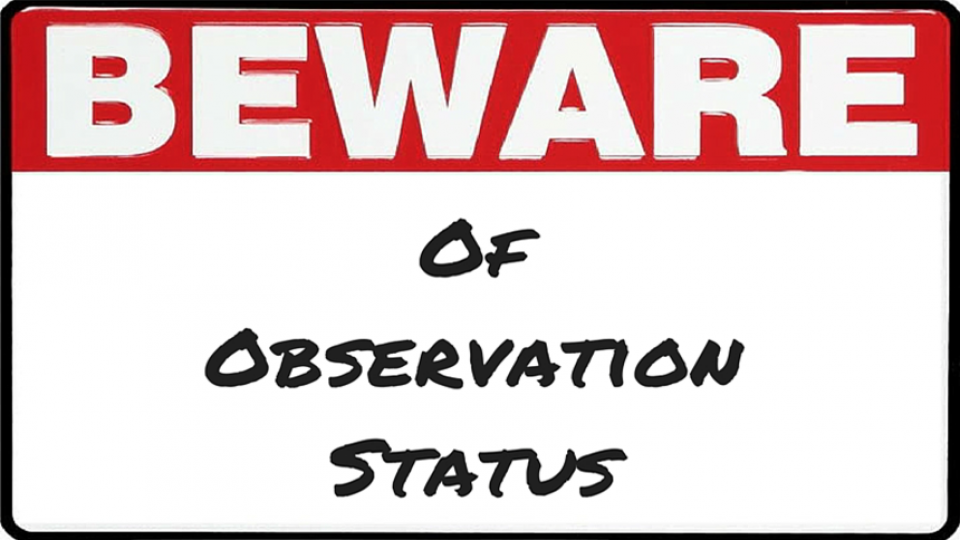Beware of “Observation Status”

For Medicare patients, “observation status” may have significant consequences
Consider the following scenario: a 70-year-old man enters the hospital to undergo treatment for some symptoms he has been experiencing. He stays in the hospital for several days and nights. Later, he finds out that he was never actually an “inpatient” at the hospital, as he was instead deemed to be under “observation status.”
What does this mean? Observation status is a designation that hospitals use to bill Medicare. For patients who rely on Medicare for their coverage, this status can hurt them. Observation status is an outpatient status, and, in many cases, patients are never told that their care has been categorized this way. Or, more commonly, they are told they are being sent to an “observation unit,” but they aren’t told the implications of the unit’s designation.
If an individual receives inpatient care in a hospital or medical facility, Medicare will pay for certain treatments. However, if a patient receives outpatient care, Medicare may not cover those same procedures. Therefore, the patient will be on the hook for the cost of these treatments, even though Medicare would have covered it had the patient’s care been designated as inpatient treatment. This is because outpatient status is covered by Medicare Part B, whereas Medicare Part A covers inpatient hospital admissions. A patient with only Part A coverage will be responsible for the cost of his or her stay while under observation care.
The inpatient/outpatient designation becomes especially critical if a patient needs nursing home care. Medicare will only cover nursing home care if a patient has had a three-day inpatient hospital stay. Therefore, observation status, even if it lasts for three days or longer, will not count toward this requirement. Additionally, a patient’s status can change from day to day, further complicating the issue. So, if a patient is transferred from an outpatient unit to a nursing home for rehabilitation, Medicare may not pay for the rehab stay. Too often, patients only realize this after the charges have been incurred!
The problem with observation care seems to be rising. From 2006 to 2011, the number of seniors who entered the hospital for observation increased by 69 percent. Interestingly, six of the top ten reasons for observation are also in the top ten most frequent reasons for inpatient care. These are digestive disorders, fainting, chest pain, nutritional disorders, circulatory problems, and irregular heartbeat.
To avoid such unpleasant surprises relating to your stay in an observation unit, patients and their families should confirm patient status while in the hospital. If appropriate, a doctor’s assistance may be sought to designate the patient as an “inpatient.” If the hospital insists on maintaining outpatient status for the patient, this status should be provided in a written notice, and an appeal can be filed as well. The appeal should argue that the care is medically necessary and is an inpatient hospital level of care. However, obtaining Medicare coverage in these cases is quite challenging.
Observation status should not affect the quality of the care you receive. It should only affect your bill. But, sometimes that is not the case. Sometimes, an “observation” unit involves too little actual observing, and significant mistakes can result. No matter what unit a patient is assigned to, it is important for the patient or a family member to participate in the plan of care as much as possible by asking questions and taking notes of what is scheduled for the patient and what actually is being done.
If you or a loved one has been injured in a hospital or medical setting, do not hesitate to contact us at 216-687-0900 or contact us online. We have successfully handled many multimillion dollar cases and work only on medical negligence cases. Observation status or not, significant medical errors should not occur. We can help you get to the bottom of your specific case and to seek the justice you deserve.




